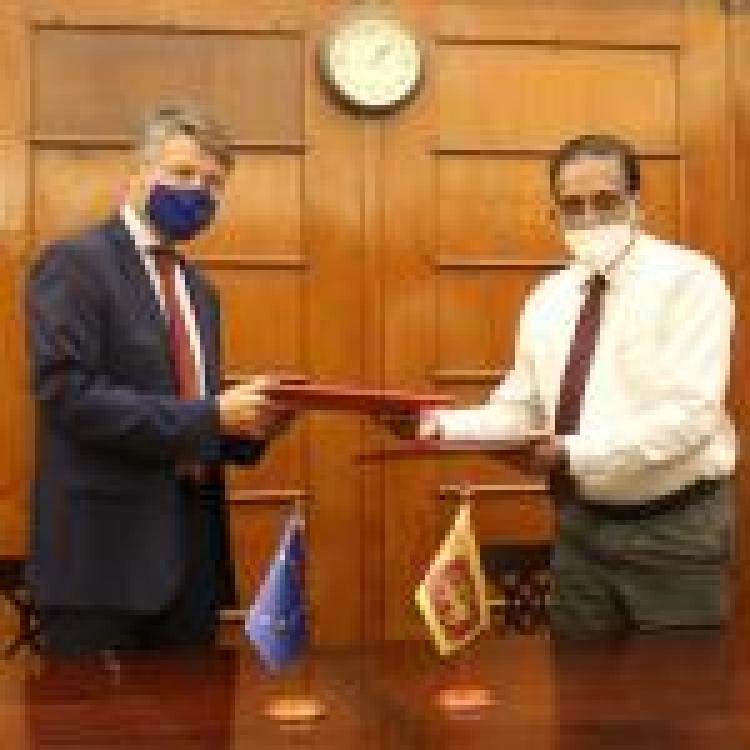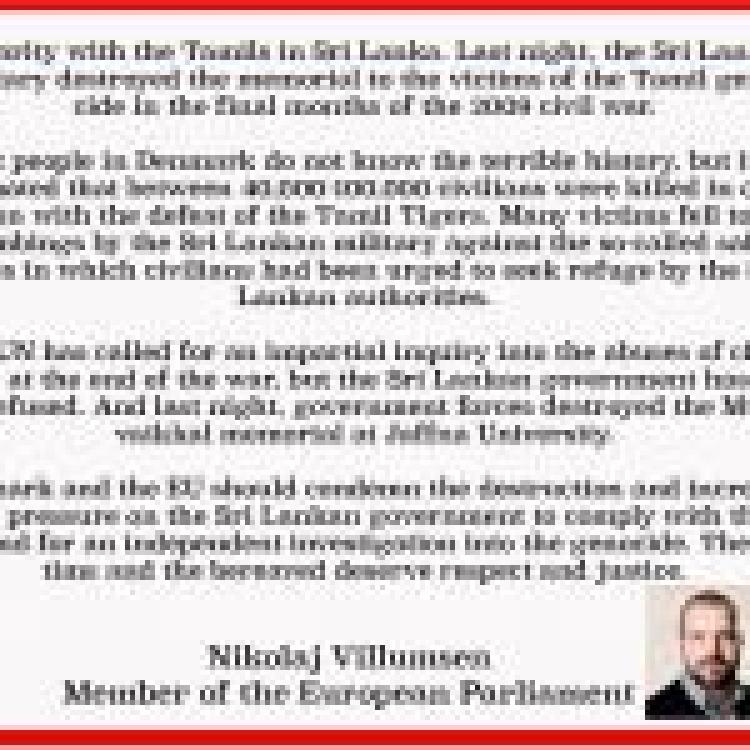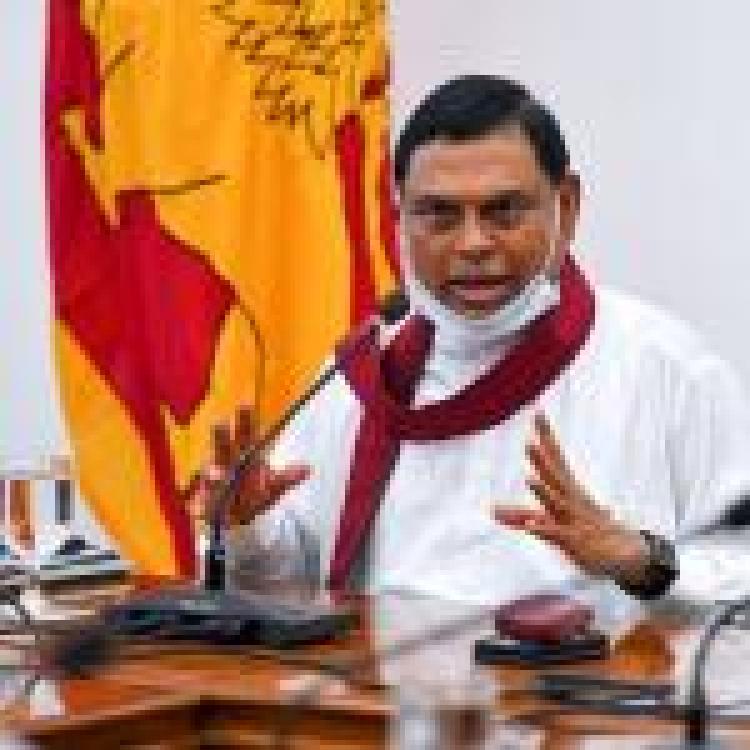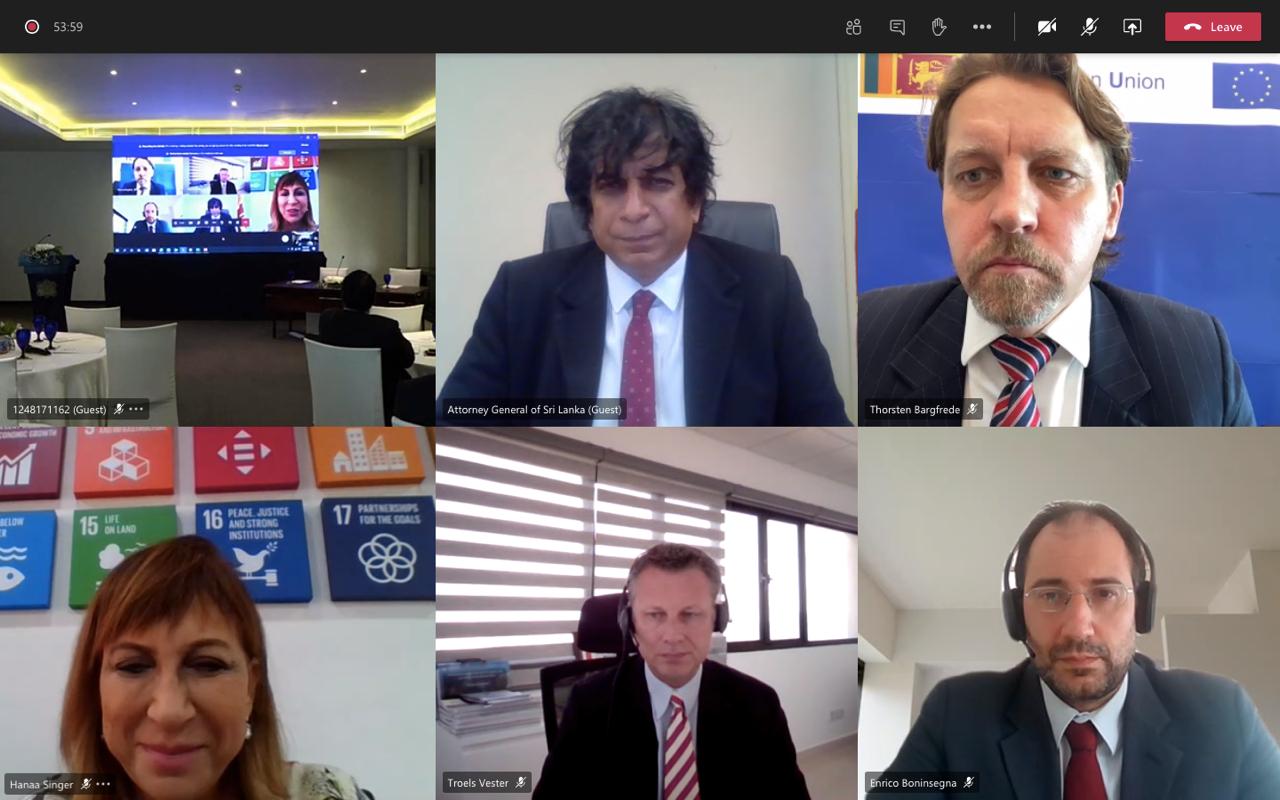
The European Union has agreed to fund counter-terrorism training provided by the United Nations Office on Drugs and Crime (UNODC) despite on-going human rights concerns.
Troels Vester, a representative of UNODC Sri Lanka and Maldives, announced the training on Twitter, specifying that the training would range from “human rights to successful convictions”.
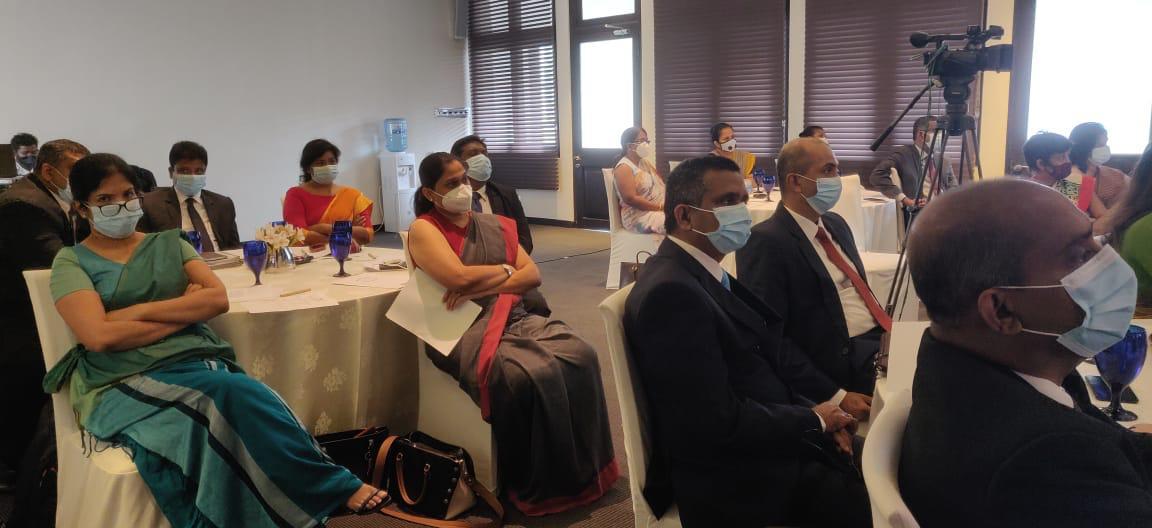
The EU’s continued funding of training for Sri Lanka comes despite Sri Lanka’s refusal to repeal the draconian Prevention of Terrorism Act (PTA), which was key commitment Sri Lanka had made to secure favourable trading relationship under the GSP+ agreement.
On 26 May 2020, the EU expressed “deep concerns” over the detention of Muslim lawyer Hejaaz Hizbullah under the PTA and called on Sri Lanka to review its counter-terrorism legislation. Hizbullah who held in custody on 14 April 2020 remains in detention and has tested positively for COVID-19. Despite this, the EU has continued its GSP+ agreement.
Responding to the funded training the EU claimed that there could be no-trade off between human rights and “combatting terrorism”.
Sri Lanka’s former Human Rights Commissioner has admitted that “historically, Tamils, dissenters, those critical of the government of the time, and anyone calling for accountability for human rights violations have been labelled LTTE or portrayed as threats to national security” and that "such labelling is done to create an environment the enables the state to justify any punitive action taken against them."
Read more here: Not All Detainees Are Equal: Class, Ethnicity and the Prevention of Terrorism Act
French MPs call for the end of Tamil persecution

Over 20 French MPs have called on President Emmanuel Macron to ensure that France "as a member of the United Nations Security Council, use all its influence" and “enable the Tamil people to finally live in safety in Sri Lanka”.
In their statement, they highlight “the practice of torture and surveillance” of Tamil political prisoners through the Prevention of Terrorism Act (PTA) which has been disproportionately used against Tamils.

